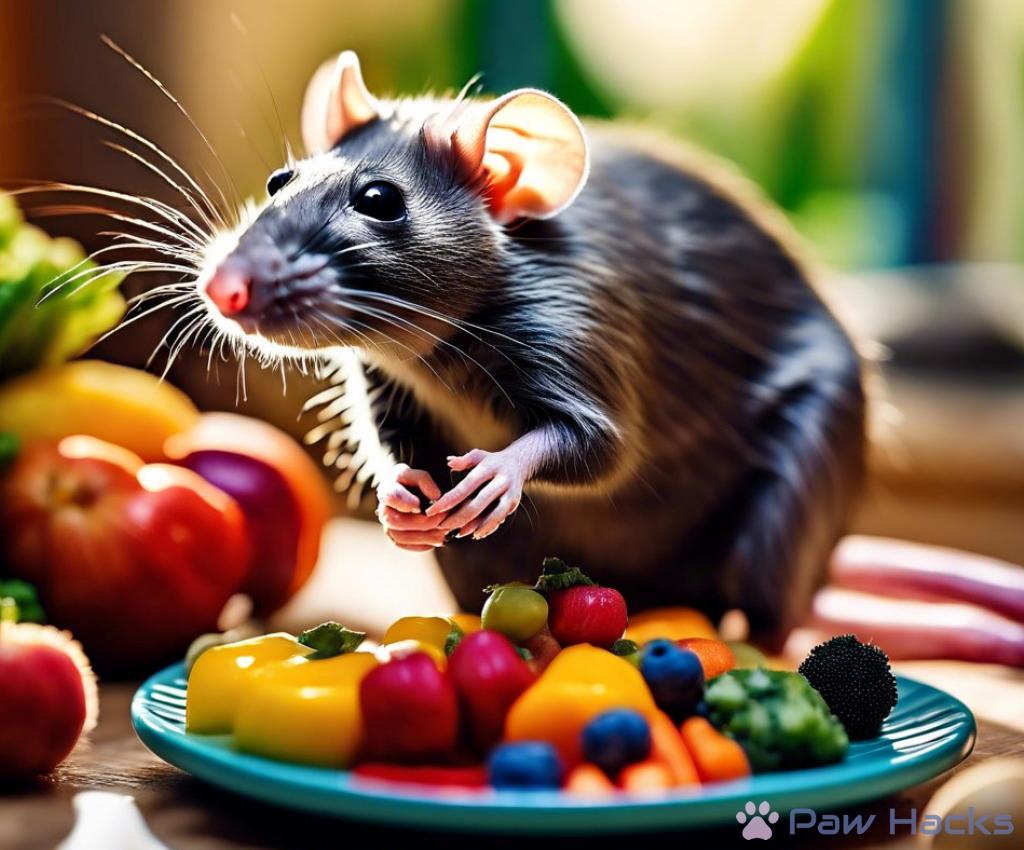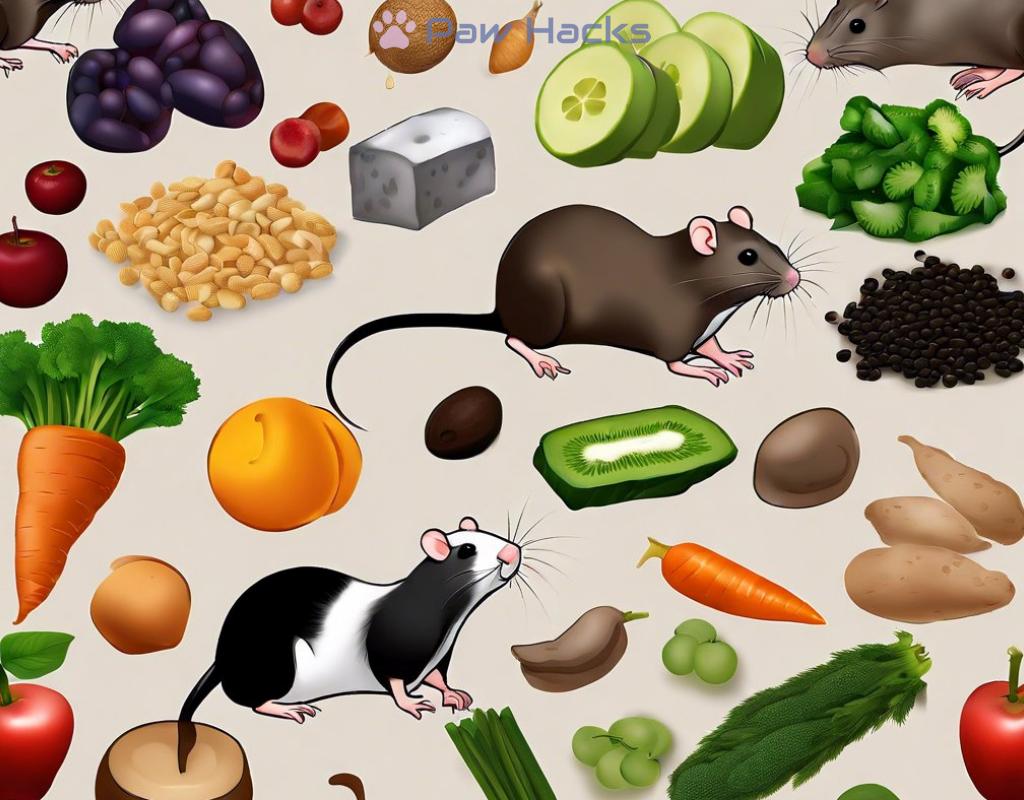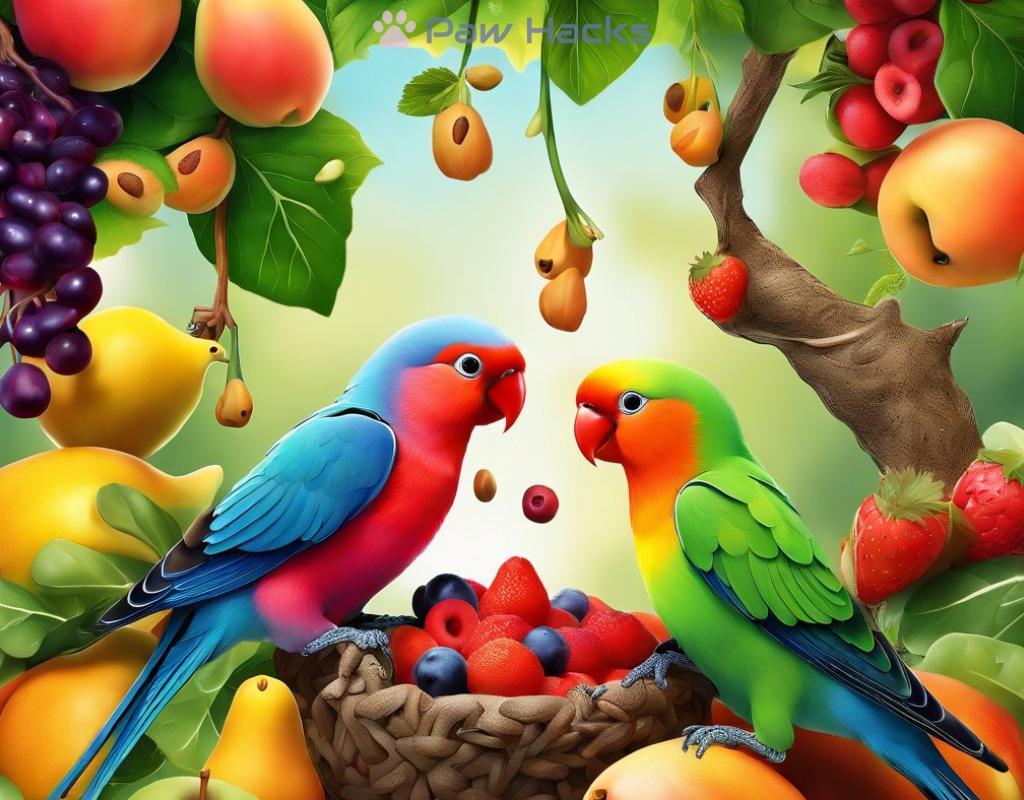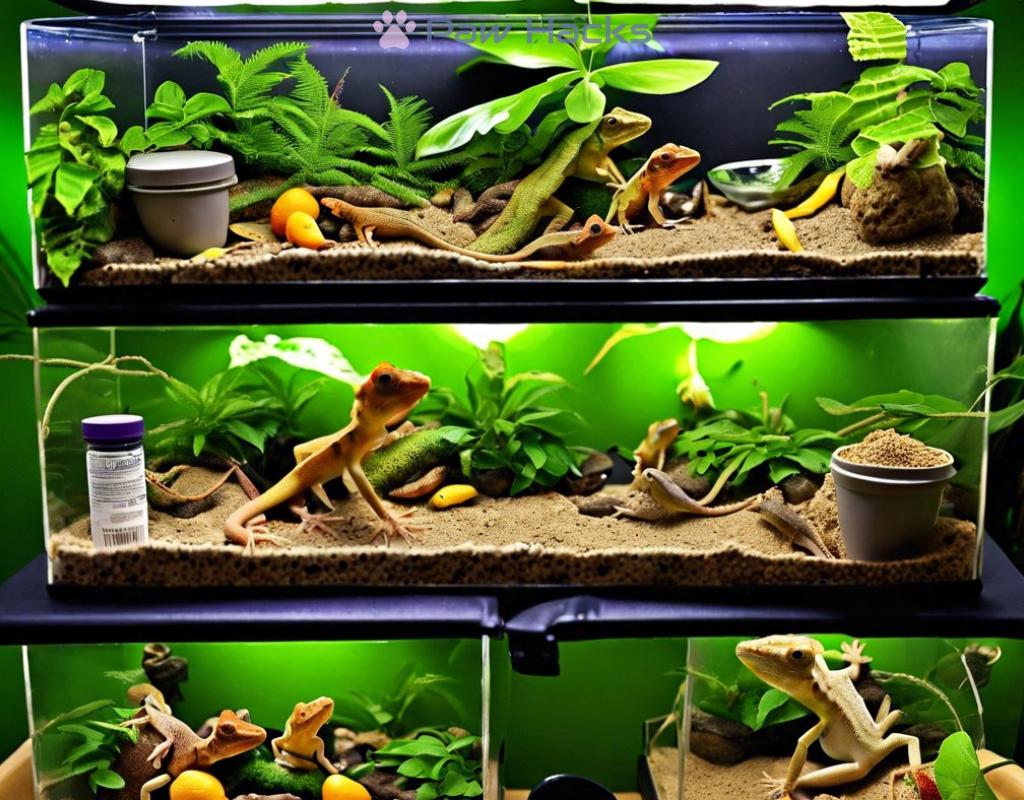Feeding Guidelines for Pet Rats
Understanding Your Pet Rat’s Nutritional Needs

Just like humans, pet rats have specific nutritional requirements that ensure they remain healthy and happy. Understanding these needs is the first step toward providing a balanced diet that supports their growth, energy levels, and overall well-being. Pet rats are omnivores, which means they eat a wide variety of foods, but not all options are created equal. Let’s explore what makes up a nutritious diet for your furry friend.
A well-rounded diet for pet rats includes a mix of proteins, carbohydrates, fats, vitamins, and minerals. Each of these components plays a vital role in keeping your rat healthy. Here’s a detailed breakdown of essential nutrients and their sources:
| Nutrient | Sources | Importance |
|---|---|---|
| Proteins | Nuts, seeds, cooked eggs, lean meats | Supports growth and muscle development |
| Carbohydrates | Whole grains, fruits, vegetables | Provides energy for daily activities |
| Fats | Fish oil, flaxseed oil, nuts | Important for skin and coat health |
| Vitamins & Minerals | Fresh fruits, vegetables, supplements | Boosts immune system and overall health |
Feeding your pet rat a balanced meal plan can significantly impact their health and happiness. Here’s a simple list of tips to help you curate the perfect diet:
- Provide a commercial rat food as a base, ensuring it is high-quality and formulated specifically for rats.
- Supplement their diet with fresh fruits and vegetables, such as carrots, apples, or leafy greens, but avoid toxic foods like onions and chocolate.
- Include protein sources a few times a week to support muscle health.
- Always ensure fresh water is available, changing it daily to keep it clean.
By following these feeding guidelines, you can help ensure that your pet rat leads a full and active life. Remember that each rat is unique, so observe how they respond to different foods and adjust their diet accordingly.
Essential Foods for a Balanced Rat Diet
When it comes to nourishing our pet rats, understanding the essential foods that contribute to their health is paramount. A balanced diet is not merely about filling their bowls; it’s about selecting the right ingredients that support their unique needs. Just as in human diets, variety is key. By incorporating a wide range of food options, you can ensure that your furry companion receives the nutrients necessary for optimal growth and vitality.
At the heart of a rat’s diet lies a quality commercial rat food. This should be specifically formulated to meet their dietary requirements. Look for options that are rich in whole grains and contain a balance of proteins and fiber. These ingredients serve as a solid foundation for your pet’s meals, providing essential energy and supporting their digestive health. Additionally, avoid low-quality products that include fillers or artificial ingredients, as these can lead to health issues in the long run.
Fruits and vegetables are not only delicious but also crucial for your rat’s diet. They offer a plethora of vitamins and antioxidants that can help boost their immune system and overall well-being. However, not all produce is safe for rats. It’s important to introduce a variety of safe options like carrots, broccoli, and apples, while steering clear of toxic items like grapes and citrus fruits. When serving fruits and vegetables, fresh is best, and always ensure they are washed thoroughly to remove any pesticides. Remember, moderation is key; offering these treats a few times a week will keep your pet excited about mealtime and promote a healthy lifestyle.
Treats and Snacks: What’s Safe and What’s Not?
When it comes to keeping your pet rat happy, treats and snacks can play a pivotal role in their diet. However, not all snacks are created equal, and some can even be harmful. Understanding which treats are safe for your furry friend is essential to their well-being. Let’s dive into the world of rat-friendly snacks and learn how to keep treat time both fun and nutritious.
Pet rats enjoy a variety of treats, and many can be easily incorporated into their diet. Natural foods can provide not only flavor but also important nutrients. When selecting treats, opt for those that are wholesome and free from additives. Here’s a list of safe options:
- Fresh Fruits: Small pieces of apples, bananas, or berries are excellent for a sweet treat.
- Vegetable Snacks: Carrots, cucumbers, and spinach make crunchy, nutritious options.
- Nuts and Seeds: A few unsalted nuts or seeds can serve as protein-packed rewards.
- Commercial Treats: Look for high-quality, specially formulated rat treats that are low in sugar.
While it’s tempting to share your favorite snacks with your pet rat, some human foods can be toxic or detrimental to their health. It’s crucial to avoid the following:
- Chocolate: Highly toxic to rats, even small amounts can be dangerous.
- Onions and Garlic: These can cause gastrointestinal distress and damage to red blood cells.
- Citrus Fruits: While some fruits are safe, citrus can upset a rat’s stomach.
- Processed Foods: Anything high in sugar, salt, or artificial additives should be avoided.
By being mindful of the treats you offer, you can ensure that your pet rat enjoys a variety of flavors while maintaining a balanced diet. Always introduce new treats gradually and observe how your rat responds to ensure their tummy stays happy!
Hydration: The Importance of Fresh Water for Your Rats
When it comes to caring for your pet rat, one aspect that often goes overlooked is the importance of hydration. Just like in humans, water is essential for rats to maintain their health and well-being. It plays a critical role in numerous bodily functions, from digestion to temperature regulation. Ensuring that your furry companion has access to fresh, clean water at all times is vital for their overall vitality and energy levels.
Pet rats have varying hydration needs depending on their age, activity level, and diet. Typically, an adult rat requires about 10-15 milliliters of water per 100 grams of body weight daily. This means that a standard rat weighing around 300 grams would need approximately 30-45 milliliters of water each day. It’s essential to monitor their intake, especially during hot weather or if your pet is consuming dry foods, as both factors can increase their need for water.
To encourage proper hydration, make sure to offer fresh water daily, and always check their water supply to prevent contamination. Rats are curious creatures and may inadvertently taint their water with bedding or food debris. Invest in a water bottle with a sipper tube or a shallow dish to provide easy access to water. While bottles tend to keep water cleaner, some rats may prefer drinking from a dish. Therefore, observe your pet’s preferences and adjust accordingly.
Being attentive to your rat’s hydration status is crucial for their health. Signs of dehydration can include lethargy, dry skin, sunken eyes, and a decrease in appetite. If you notice any of these symptoms, it’s essential to act quickly. Rehydrating your pet can often be done by offering them fresh water or providing wet foods like fruits and vegetables, which have high water content. In severe cases, it may be necessary to consult a veterinarian for further intervention.
In conclusion, maintaining adequate hydration is a fundamental part of your pet rat’s nutrition. By ensuring that your rats always have access to fresh water and being mindful of their hydration needs, you are taking a significant step toward ensuring their health and happiness. Remember, a well-hydrated rat is a lively and joyful companion!
Common Dietary Mistakes to Avoid for Happy, Healthy Rats
When it comes to feeding your pet rat, making informed choices is crucial to their well-being. Many pet owners unknowingly make dietary mistakes that can impact their furry friends’ health and happiness. Understanding these common pitfalls can help you create a nourishing environment that fosters a long and vibrant life for your rat. Below, we explore some of the most prevalent dietary errors and how to avoid them.
A frequent mistake among rat owners is neglecting the importance of a balanced diet. While it may be tempting to feed your rat an assortment of treats and snacks, this can lead to nutritional deficiencies or excesses. A balanced diet should include the right proportions of proteins, carbohydrates, fats, vitamins, and minerals. Rats thrive on variety and moderation; thus, it’s essential to incorporate high-quality commercial rat food as the foundation of their diet, supplemented with fresh fruits and vegetables. When you focus on providing a diverse range of foods, you enhance your rat’s overall health and vitality.
Another common oversight is the neglect of food freshness and cleanliness. Rats are sensitive creatures, and stale or contaminated food can lead to serious health issues. Always ensure that food is fresh and free from mold or spoilage. Additionally, regularly clean their food dishes to prevent the growth of harmful bacteria. Providing fresh food not only keeps your pet healthy but also encourages them to explore new flavors and textures, promoting a more enriching feeding experience. Don’t forget about water—always offer clean, fresh water daily to keep your pet hydrated and happy.
Avoiding these dietary mistakes is vital for fostering a thriving environment for your pet rat. By emphasizing a balanced diet and ensuring cleanliness, you can enjoy a long, joyful companionship with your furry friend. Remember, informed feeding leads to a more vibrant and healthy life!
Share this content:



